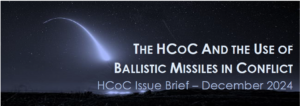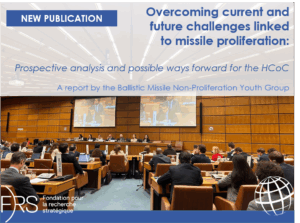Missile Control
UNIDIR Disarmament Forum
Special Issue
This issue of Disarmament Forum assesses the current situation concerning missiles and investigates future prospects for control. Existing devices, such as the Missile Technology Control Regime and the Hague Code of Conduct (HCOC), UN Security Council resolution 1540 and the Proliferation Security Initiative, are all attempts at ameliorating some aspects of missile-related problems, as are the various bilateral confidence-building measures already in operation. Much remains to be done, however, as cruise missiles are largely unregulated, HCOC implementation is progressing but leaves much to be desired, and research, development, deployment and international cooperation on active anti-ballistic missile defences continue apace. Following two United Nations panels of governmental experts on missiles in 2002 and 2004 (the latter of which failed to adopt a consensus report) and an expert study conveyed by the UN Secretary-General to the General Assembly in 2006, a third panel of governmental experts will be convened later this year.
FEBRUARY 2007
CONTENTS

- Missiles matter (Christophe Carle)
- Missiles in conflict: the issue of missiles in all its complexity (Jürgen Scheffran)
- Lessons from regional approaches to managing missiles (Waheguru Pal Singh Sidhu)
- Missile control agreements: a general approach to monitoring and verification (Michael Vannoni & Kent Biringer)
- Connecting paradigms: MANPADS in the national and human security debates (James Bevan)
- The final frontier: missile defence in space? (Bruno Gruselle)



